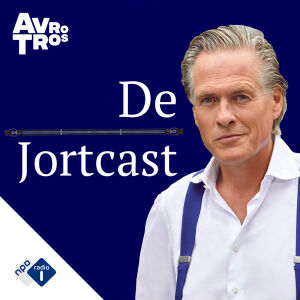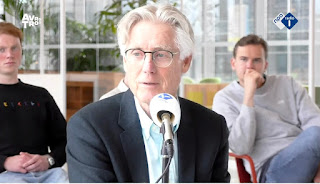“Everyone favours abolishing the expert statement, including the experts themselves.” A much-heard argument in the discussion about the new transgender law. But is this evident from the one study from 2017 that is constantly cited? Short answer: no. A critical analysis of 'Doing justice to gender identity. Evaluation of three years of transgender law in the Netherlands 2014-2017.’"
Peter Vasterman
Download PDF
Soon, the Netherlands will have a new law allowing anyone to change the gender on their birth certificate without any verification. One administrative act will say that you did not come into the world as a boy or girl but as a girl or boy.
The most significant change in the new transgender law is cancelling the so-called expert statement. In it, an expert, usually a psychologist from a gender clinic, states that someone has "the lasting conviction of belonging to the opposite sex from that stated on the birth certificate." Now that this declaration is to be dropped, the only thing that counts to change your passport is the “lived gender identity”: whether someone “feels” male or female inside.
Consensus on abolishing the expert statement?
In the debate on the Act, frequent reference is made to an evaluation study from 2017, which allegedly shows that this expert statement can be abolished, because the gender experts themselves, who issue these statements, would not see the point. That study, Recht doen aan genderidentiteit. Evaluatie drie jaar transgenderwet in Nederland 2014-2017 (Doing justice to gender identity. Evaluating three years of transgender law in the Netherlands 2014-2017), was commissioned by the Ministry of Justice and Security and carried out by Marjolein van den Brink, lecturer in law at the University of Utrecht.
This "conclusion" is also repeatedly put forward by advocates of the law as the main argument for dropping the expert opinion. Thus Brand Berghouwer, chairman Transgender Netwerk Nederland, and Astrid Oosenbrug, chair of COC Nederland, in De Telegraaf (10 februari 2022): “At present, trans persons still need an 'expert statement' to change their registration. But according to the experts themselves, the statement adds nothing and can be abolished. This has emerged from a scientific evaluation commissioned by the government.”
Minister Dekker, the proposer of the law, also argued that the declaration could be dropped according to the experts consulted, based on the evaluation study. Both in the Memorie van Toelichting and in the answers by the minister to parliamentary questions, Dekker states: “According to the researchers, there is a considerable consensus among transgender persons, parents of transgender children, experts and officials that the expert statement, at least for adults, can be dropped.”
Appearances can be deceptive
So the gender experts and all the groups consulted would argue in favour of abolishing the declaration. Although the report literally states this, appearances can be deceptive. The experts are “ambivalent” towards the declaration and are divided among themselves, but the civil servants are largely in favour of the declaration. Even among the various groups surveyed (parents of transgender children and visitors to the TNN website), a minority favours abolishing the declaration. Only the representatives of interest groups are unanimously in favour: Transgender Netwerk Nederland, COC Netherlands, patient organisation Transvisie and Nederlands Netwerk Intersekse/DSD (NNID).
Moreover, on closer examination, the study shows numerous scientific and methodological flaws: not only were only three (!) gender experts interviewed, but the four surveys intended to serve as evidence are also seriously flawed. Samples are unclear, questionnaires are brief or incomparable, results and tables with percentages are missing, and in one case, only nine participants took part in the survey. This makes it difficult to check whether the results are balanced in the report, especially since Van den Brink reproduces answers from interviews and surveys rather selectively.
Amazingly, new legislation is based on an evaluation, more like a quick scan than thorough scientific research.






